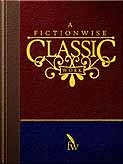- Popular ebook fiction
- Truth and Reconciliation in Canada
- MMIWG
- Mental Health
- Canadian Indigenous Voices
- February Romance 2024
- Canada Reads 2024 longlist
- Black History Month 2024
- Freedom to Read Week 2024
- February - I love to read month
- See all
-
Description
-
Details

OverDrive Read
- Release date: August 5, 2004
PDF ebook
- File size: 3920 KB
- Release date: August 5, 2004
Formats
OverDrive Read
PDF ebook
subjects
Languages
English
Levels
Text Difficulty:9-12
